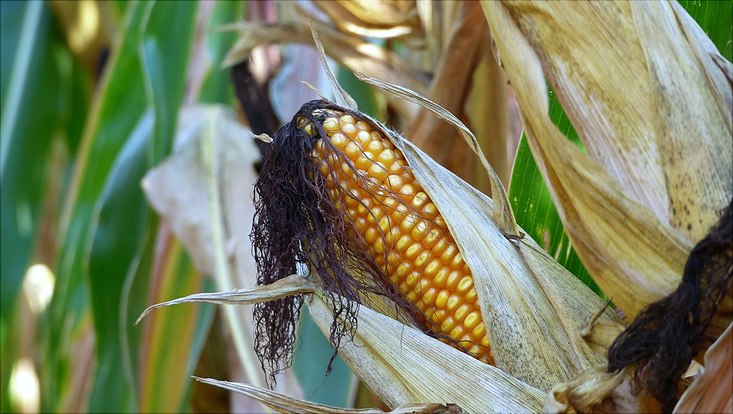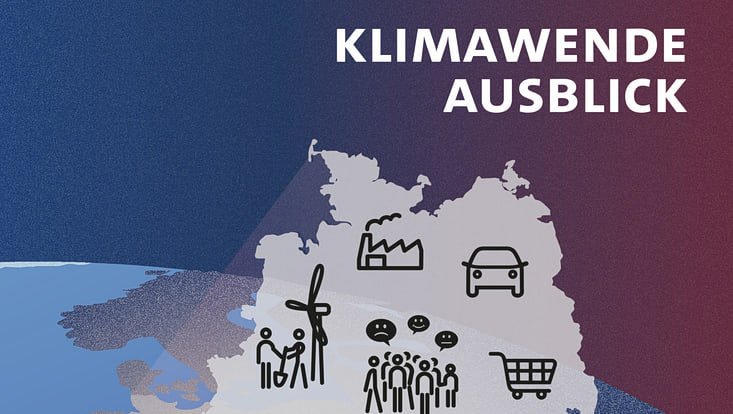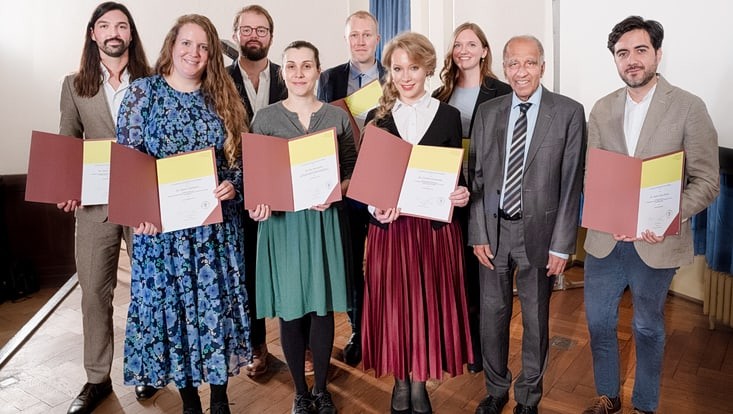and Society (CLICCS)
Rethinking How Germany Eats
5 September 2022, by Stephanie Janssen

Photo: J. Blueberry/unsplash
Germany will only achieve its declared climate goals by 2050 if massive changes are made in its agricultural sector. According to a new study from Universität Hamburg, stakeholders in the sector fundamentally consider the goals to be achievable, provided that Germans are willing to change their eating habits. For the first time, the study calculates what the potential effects of such a sea change would be: agricultural emissions could be reduced by two-thirds or more by 2050.
Germany has set itself the goal of reducing its greenhouse-gas emissions by 65 percent by 2030; of that number, 36 percent is to come from agriculture. At the same time, by 2030 new land-use policies for pastures and crop fields are to avoid up to 25 million metric tons of CO2 from being released into the atmosphere per year. On this basis, the study just released in the journal Sustainability Science poses the question: how realistic do stakeholder groups not involved in politics consider the planned measures to be?
Dr. Livia Rasche from the Cluster of Excellence for climate research CLICCS at Universität Hamburg and her team conducted a survey of 25 central institutions from the agricultural and food sectors. They can be divided into three groups: associations and societies (private sector, 25%); government offices (public sector, 25%), and agricultural institutes (academic sector, 50%). Although the results aren’t representative, the study is the first to offer insights into the expectations of relevant groups of experts outside political circles.
How did those surveyed expect Germans to shop in the future? How much less meat and how much more eggs or legumes will Germany’s citizens have in their shopping carts by 2050? This will determine whether or not the agricultural sector can meet its CO2 goals. The survey also included questions on production levels for meat and plant-based products, and on the percentage by which food waste could realistically be reduced by 2050.
With the aid of a complex agricultural model, the stakeholders’ estimates were subsequently analyzed and converted into future CO2 emissions. Based on the results, agricultural greenhouse-gas emissions could be reduced by at least two-thirds by 2050, from 66 million metric tons of CO2 (equivalent) to 22 million. In addition, natural areas, which currently make up 19 percent of Germany’s land area, could grow to between 27 and 32 percent.
All groups surveyed consider the agreed-upon goals to be achievable, provided the public is willing to change its eating habits accordingly. In concrete terms, Germans would need to eat 50 to 60 percent less meat and 20 percent more vegetables, while also reducing their average caloric intake. Comparing the groups, stakeholders from the academic and public sector consider this far more feasible than the farmers’ associations do.
Meat production generates substantially more CO2 than the production of plant-based foods; there is considerable potential for saving CO2 here. In addition, reduced meat consumption would mean that pastures and grazing areas could be transformed into natural areas, saving additional CO2.
More Information on the Study
Original article:
Rasche L, Schneider U, Steinhauser J (2022): A stakeholders' pathway towards a future land use and food system in Germany; Sustainability Science
Stakeholder groups
For the survey, 51 organizations from the sectors listed below were invited; 25 participated. Nearly half of those surveyed claimed to work for an academic institute, a quarter for a government office, and a quarter for an association or federation in the private sector.
Private sector: Farmers’ associations, German Horticultural Association (ZVG), Naturland e.V., Federation of the Organic Food Industry (BÖLW), German Agricultural Society (DLG), Meine Landwirtschaft, German Nutrition Society (DGE), various supermarket chains
Public sector: Chambers of Agriculture of the Federal States, Ministries of Agriculture of the Federal States, German Environment Agency (UBA), Federal Office for Agriculture and Food
Academic sector: Research Institute of Organic Agriculture (FiBL), Thünen Institute of Organic Farming, Thünen Institute of Climate-Smart Agriculture, Leibniz Centre for Agricultural Landscape Research (ZALF), Agricultural Sciences Institutes at the University of Hohenheim, University of Göttingen and Technical University of Munich
Contact:
Dr. Livia Rasche
Center for Earth System Research and Sustainability (CEN)
Cluster of Excellence “Climate, Climatic Change, and Society” (CLICCS)
Universität Hamburg
+49 40 42838 7243
livia.rasche"AT"uni-hamburg.de
Stephanie Janssen
Press / Outreach
Center for Earth System Research and Sustainability (CEN)
Cluster of Excellence “Climate, Climatic Change, and Society” (CLICCS)
Universität Hamburg
+49 40 42838 7596
stephanie.janssen"AT"uni-hamburg.de


